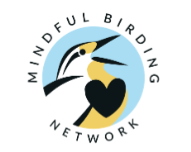Mental Health And Watching Birds
Just like the Covid-19 pandemic truly tested our mental toughness now financial insecurity due to high interest rates is the new challenge to our mental well-being. We are dealing with depression, anxiety and all the related health issues that come along with these tough times.
 Scientists know interacting with a pet for a few minutes a day can decrease levels of cortisol (stress), increase feel-good hormones, promote relaxation, and create mindful connection. But what about those of us who don’t own pets or have an animal near by? Well researchers have found out that mental, physical, and emotional well-being can be positively influenced by nature as well- specifically watching the birds! This amazing self-regulated, no doctors or prescriptions needed mental health program is available to everyone of all ages.
Scientists know interacting with a pet for a few minutes a day can decrease levels of cortisol (stress), increase feel-good hormones, promote relaxation, and create mindful connection. But what about those of us who don’t own pets or have an animal near by? Well researchers have found out that mental, physical, and emotional well-being can be positively influenced by nature as well- specifically watching the birds! This amazing self-regulated, no doctors or prescriptions needed mental health program is available to everyone of all ages.
 Studies show that immersing in nature can…
Studies show that immersing in nature can…
• Decrease anxiety
• Lower stress & cortisol
• Reduce negative thinking patterns
• Improve memory and cognition and improve concentration
• Increase productivity and creativity
• Promote recovery from mental health issues
Scientists and doctors have now taken a great interest in the concept of what nature can do to help people The following are some key points taken from the articles reference regarding health benefits of bird feeding & watching for people
• Individuals residing in areas with more birds are less likely to suffer from depression, anxiety and stress (University of Exeter, 2017). You don’t have to know anything about birds to benefit.
• When we step outside into nature, chemical responses are released inside our bodies. Cortisol, the hormone that flips into overdrive when we are stressed, starts to lower. Studies show 20-40 minutes of nature exposure lowers cortisol rates.
• Birdsong reduces anxiety and irrational thoughts (Max Planck Institute, 2022).
• Seeing or hearing birds is associated with an improvement in mental wellbeing that can last up to eight hours (King’s College, October 2022).
• Feeding birds may provide an important tool for engaging people with nature to the benefit of both people and conservation (Cox & Gaston, 2016).
• Taking a chance on bird feeding can end up changing the directory of thought patterns, emotion processes, and relationship management according to the Audubon Bird Guide (Wild Bird Feeding Institute). 
• Studies show many benefits of nature and birds on mental and physical well-being, including: Lowering blood pressure, Reducing anxiety, Relieving stress, Boosting the immune system, Strengthening the vascular system, Boosting mood.
• People who feed birds regularly feel more relaxed and connected to nature when they watch garden birds, and perceive that bird feeding is beneficial for bird welfare while investing time in minimizing associated risks (Cox and Gaston, 2016).
People living in neighborhoods with more birds, shrubs and trees are less likely to suffer from depression, anxiety and stress, according to research by academics at the University of Exeter, the British Trust for Ornithology and the University of Queensland.
This study, which surveyed mental health in over 270 people from different ages, incomes, and ethnicities; found benefits for mental health of being able to see birds, shrubs and trees around the home. These results were positive whether people lived in urban or more leafy suburban neighborhoods. Another conclusion this study found was those who spent less time out of doors than usual in the previous week were more likely to report they were anxious or depressed.
While there are many academic articles written about how positively birding influences the mental health of individuals there are also articles written in magazines over the years or by National Geographic and Audubon. Such as the one below, and they also touch on the importance of the mounting scientific evidence supporting the health benefits of the outdoors and how this idea is helping to shape innovations in medicine, education, and more.
Birding With Benefits: How Nature Improves Our Mental Mindsets 
This article can be found on the Audubon website. For more articles such as the one above from the Audubon Visit our Birding and Mental Health Supplemental Articles page.

